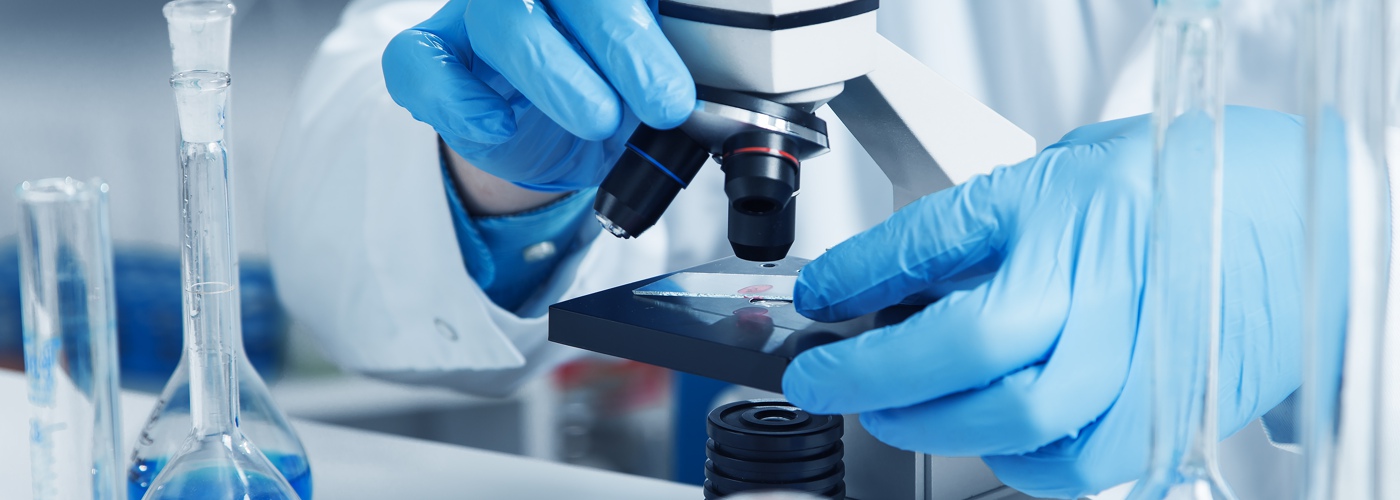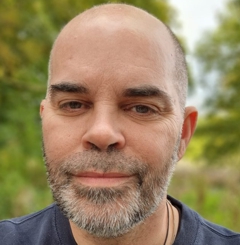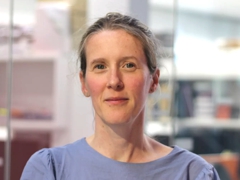Harnessing the immune system: a new era in radiotherapy research
Cancer treatment is being transformed by innovation, as researchers uncover new ways to harness the immune system to fight cancer. While radiotherapy remains an effective cancer treatment, its effects on the immune system are complex and unpredictable, making personalised treatment challenging.
By combining cutting-edge preclinical research with patient-focused studies, they are identifying innovative ways to enhance radiotherapy’s impact with immunotherapy. Their work is shaping the future of personalised cancer treatment, ensuring that more patients receive the most effective, targeted therapies for their disease.

About radiotherapy
- Radiotherapy is delivered using advanced-technology machines operated by highly trained professionals, using high energy x-rays to kill cancer.
- Radiotherapy is painless and given as an outpatient on daily basis over anything from 1 day to 7.5 weeks.
- 1 in 4 people in UK will need radiotherapy at some time in their lives.
- 40% of all cancer cures need lifesaving radiotherapy.
Source: Radiotherapy UK
Radiotherapy has long been a cornerstone of cancer treatment, with over half of all cancer patients receiving it as part of their care. While highly effective at killing tumour cells, its effects on the immune system can be double-edged, simulating a needed immune response in some cases, while suppressing it in others.
By combining radiotherapy with immunotherapy - treatments that harness the body’s own defences - Dr Jamie Honeychurch and Dr Ellie Cheadle aim to make cancer treatment more effective and personalised.
Their research spans both the laboratory and the clinic, bringing together preclinical discoveries and patient-focused studies to develop smarter, more targeted treatment strategies.
Investigating the immune response
Dr Honeychurch, a preclinical scientist, focuses on the laboratory side of the research, using models to explore how radiotherapy affects the immune system.

Dr Jamie Honeychurch
Jamie is a Senior Lecturer in the Division of Cancer Sciences at The University of Manchester.
“We want to understand why radiotherapy enhances immune responses in some cases but suppresses them in others,” he explains.
His team studies how different immune cells behave within the tumour microenvironment, and how these interactions could be manipulated to improve treatment.
At the same time, Dr Cheadle is leading efforts to translate these findings into real-world patient care.
“We work with tumour and blood samples from patients who have received radiotherapy to look for immune biomarkers - biological signals that could predict how a patient will respond,” she says.
Identifying these markers could help doctors personalise cancer treatment, selecting the best immunotherapy options for each individual.
Working together
Dr Honeychurch and Dr Cheadle’s work is a seamless blend of laboratory discovery and clinical application, each informing the other to push cancer treatment forward.
Dr Honeychurch focuses on preclinical research, using mouse models to investigate how radiotherapy interacts with the immune system and how different immunotherapy agents can enhance this response. His findings provide vital insights into how tumours evade immune attack and how treatment combinations can be optimised.
The clinical work is led by Professor Tim Illidge, who serves as the chief investigator and group leader, overseeing the translational research programme.
Meanwhile, Dr Cheadle takes these discoveries into the clinical setting, analysing patient samples to determine whether the same immune mechanisms observed in the lab are present in human cancers.
By bridging these two worlds, they are ensuring that breakthroughs in the lab translate into meaningful improvements in patient care.

Dr Eleanor Cheadle
Ellie is a Research Fellow in the Division of Cancer Sciences at The University of Manchester.
Collaboration is key to their success, as their work informs and refines each other’s research. If Dr Honeychurch’s lab identifies a promising immune response triggered by radiotherapy in a mouse model, Dr Cheadle’s team can investigate whether the same effect occurs in patients. Likewise, unexpected findings from patient samples may lead Dr Honeychurch to explore new preclinical hypotheses, helping to fine-tune treatment strategies.
This continuous feedback loop between the bench and the bedside ensures that their research remains patient-focused, accelerating the path toward more effective, personalised cancer treatments.
Overcoming challenges
One of the biggest challenges in this field is ensuring that findings from laboratory research translate effectively into real-world treatments for cancer patients. The immune system is incredibly complex, and responses to treatment can vary based on factors like age, underlying health conditions and tumour characteristics.
“The way the immune system interacts with cancer is not the same for every patient,” explains Dr Honeychurch. “We need to refine our understanding of these variations so we can develop treatments that work for a wider range of people.”
Similarly, for Dr Cheadle, while biomarker discovery offers great potential for personalised treatment, large patient cohorts are essential to validate findings and ensure their applicability across different cancer types.
“We need to scale up our research so that we can test these biomarkers in a wider population and eventually use them to guide treatment decisions in the clinic,” she explains.
This means expanding clinical studies and working closely with national and international collaborators to ensure that future treatments are both effective and widely applicable.
Making progress
Despite these challenges, the research is already making a difference. Their work has helped establish new insights into how radiotherapy affects immune cells, paving the way for better treatment combinations.
In collaboration with colleagues across the UK, US and Europe, they are working on large-scale projects to improve radiotherapy and immunotherapy integration and the potential to personalise treatment based on tumour immune profiles.
“If a tumour has lots of immune cells present, we might use one type of immunotherapy with radiotherapy, while a ‘cold’ tumour with fewer immune cells might need a different approach,” says Dr Cheadle.
The ultimate goal is to ensure that every patient receives the most effective, least toxic treatment for their specific cancer.
Looking ahead
By better understanding the relationship between radiotherapy and the immune system, Dr Honeychurch and Dr Cheadle's research is unlocking new possibilities for personalised medicine and helping to reshape the future of cancer treatment, with their research already influencing clinical trials, and directly impacting patient care in years to come.
“By combining radiotherapy with immunotherapy in a smarter way, we can improve outcomes for more cancer patients and offer people the best possible chance of beating cancer,” says Dr Honeychurch.
Learn more about radiotherapy research at the Manchester Cancer Research Centre.
